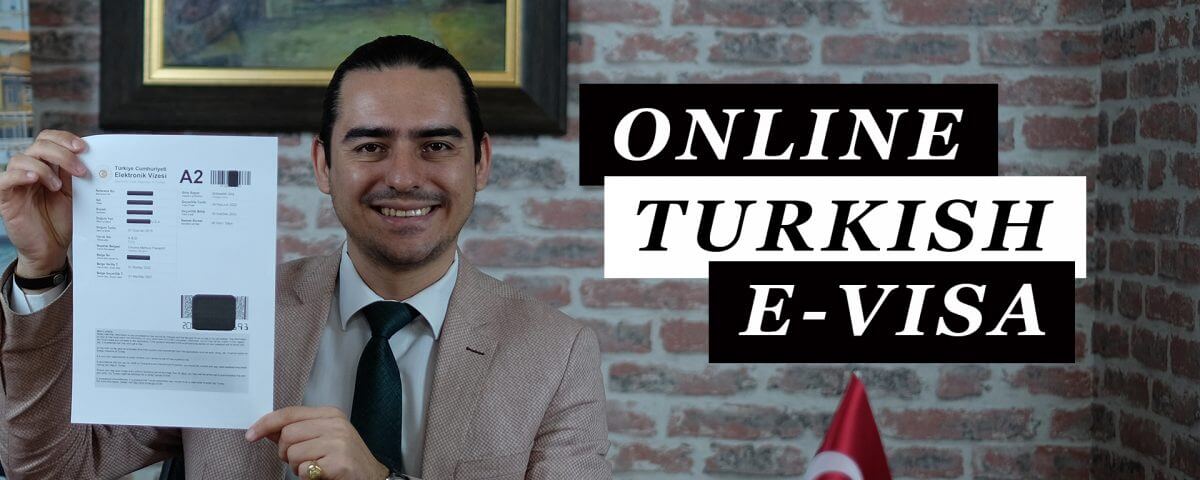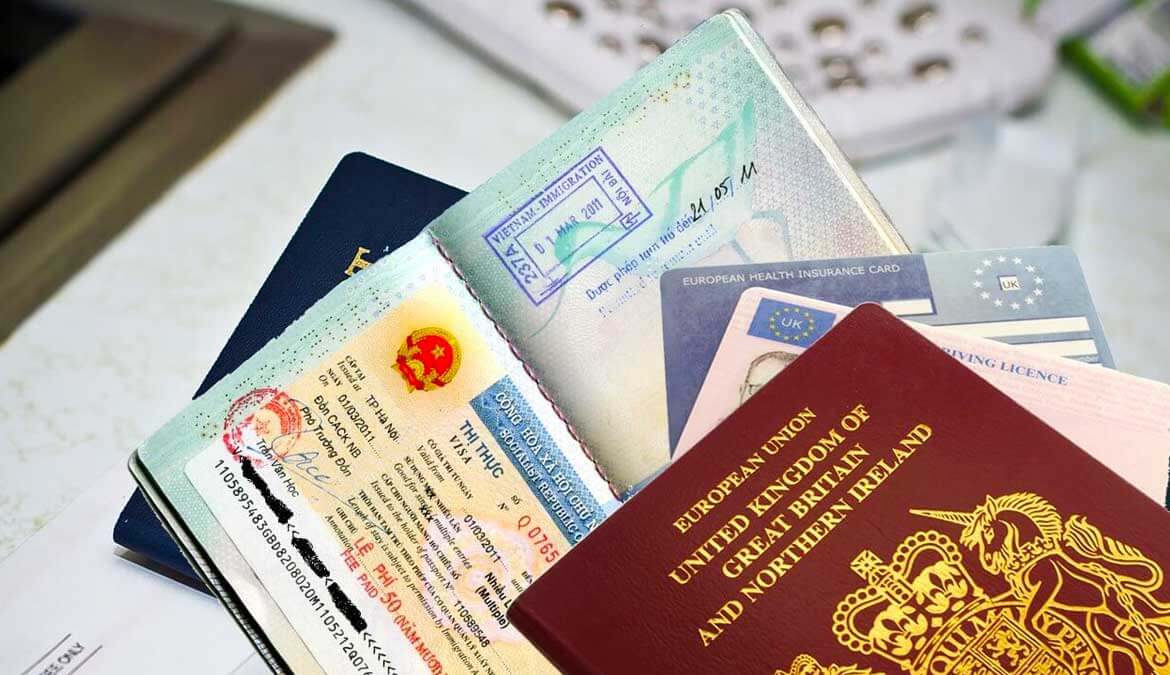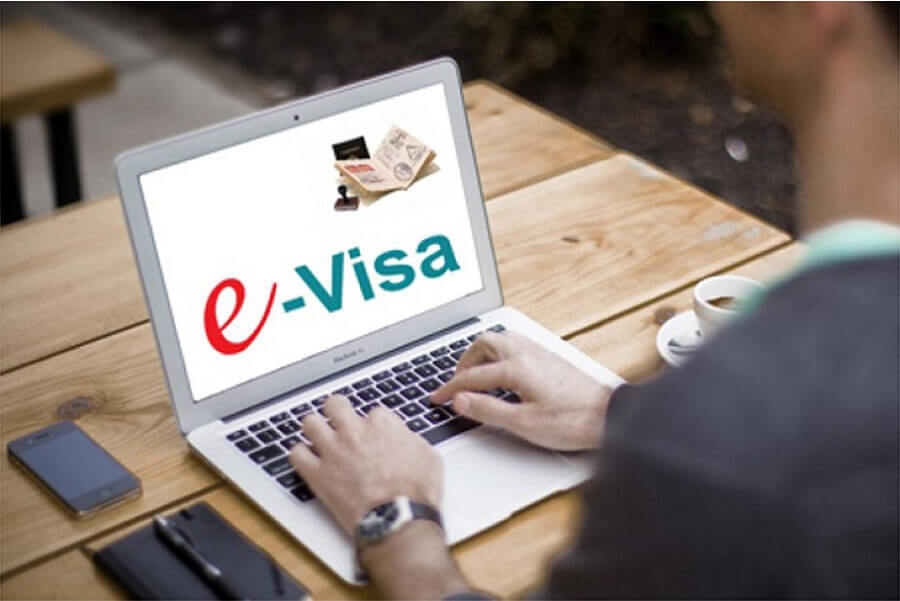The world is becoming increasingly interconnected, and with it, the need for simplified travel procedures is rising. In response to this growing demand, governments around the world are embracing a new wave of digital travel authorization: the eVisa. This article will delve into the evolution, benefits, and challenges of the eVisa, exploring its impact on global travel and its potential for the future.
Table of Contents
Understanding the eVisa: A Digital Gateway to International Travel
The eVisa, short for electronic visa, is a travel authorization granted electronically by a government to foreign nationals, eliminating the need for physical visa applications and lengthy consular processes. This digital revolution in travel authorization brings numerous benefits, making international travel more accessible and efficient:
Convenience and Efficiency
Online Application The eVisa application process is entirely online, accessible from any device with an internet connection. Travelers can complete the application, upload supporting documents, and submit it from the comfort of their homes or offices.
Faster Processing Times eVisa applications are often processed much faster than traditional paper-based visas, allowing travelers to plan their trips with greater certainty.
Reduced Paperwork With the eVisa, there is no need to physically submit documents to consulates or embassies, as all the required information and supporting documents can be uploaded electronically.
Enhanced Security
Secure Data Transmission eVisa applications are processed through secure online platforms, ensuring the protection of personal and travel-related information.
Biometric Integration Many eVisa systems incorporate biometric data, such as fingerprints or facial recognition, to verify the identity of the applicant and enhance security.
Real-Time Verification Governments can instantly verify the validity of an eVisa, reducing the risk of fraud and improving border control.
Accessibility and Inclusivity
Global Reach The eVisa system allows travelers from around the world to apply for visas, expanding access to international travel.
Language Support eVisa application platforms often support multiple languages, making the process more inclusive for travelers from diverse linguistic backgrounds.
Improved Transparency The online nature of eVisas provides travelers with greater transparency throughout the application process, including the status of their application.

Types of eVisas: Exploring the Options
Governments have implemented various types of eVisas to cater to the diverse needs of international travelers. Some common types of eVisas include:
Tourist eVisas
Tourist eVisas are designed for individuals seeking to visit a country for leisure or sightseeing purposes, typically for a limited duration.
Business eVisas
Business eVisas are intended for travelers who need to visit a country for professional or commercial activities, such as attending meetings, conferences, or conducting business negotiations.
Student eVisas
Student eVisas are for individuals who wish to study or participate in educational programs in a foreign country, often for an extended period.
Work eVisas
Work eVisas are granted to foreign nationals who have secured employment or a job offer in the destination country, allowing them to legally work and reside there.
Transit eVisas
Transit eVisas are designed for travelers who need to pass through a country on their way to their final destination, often with a shorter duration than other eVisa types.
Residence eVisas
Residence eVisas are issued to foreign nationals who intend to live in a country for an extended period, often for purposes such as investment, retirement, or family reunification.
The specific eVisa types and their requirements may vary across different countries, catering to the unique needs and policies of each destination.
eVisa Eligibility: Who Qualifies for a Digital Visa?
The eligibility criteria for eVisas can vary depending on the country and the type of visa being applied for. However, there are some general factors that are commonly considered:
Nationality
The applicant’s country of citizenship often determines their eligibility for an eVisa. Certain countries may have bilateral agreements or visa-waiver programs that allow citizens of specific nations to obtain eVisas more easily.
Purpose of Travel
The purpose of the trip, such as tourism, business, study, or work, is a crucial factor in determining eVisa eligibility. The applicant must demonstrate that their intended activities align with the specific eVisa they are applying for.
Travel History
Some countries may consider the applicant’s previous travel history, including any prior visa applications or entries into the destination country, when evaluating eVisa eligibility.
Security and Criminal Background
Governments often conduct security checks and may require applicants to provide information about their criminal history, if any, as part of the eVisa application process.
Financial Stability
Certain eVisa types, such as residence or investment visas, may require applicants to demonstrate financial stability, such as proof of income, assets, or investment funds.
Health and Medical Requirements
Some countries may have specific health and medical requirements for eVisa applicants, such as providing proof of health insurance or undergoing medical examinations.
It is essential for travelers to carefully review the eligibility criteria for the specific eVisa they are applying for, as the requirements can vary significantly across different countries and visa types.
Applying for an eVisa: A Step-by-Step Guide
The eVisa application process typically follows a streamlined, digital-first approach. Here’s a general step-by-step guide to applying for an eVisa:
Step 1: Determine the Appropriate eVisa
The first step is to identify the type of eVisa that best suits the purpose of your travel, such as a tourist, business, or student eVisa.
Step 2: Access the eVisa Application Platform
Visit the official government website or the designated eVisa application platform for the country you plan to visit.
Step 3: Create an Account
Most eVisa application platforms require applicants to create an account, providing personal information and contact details.
Step 4: Complete the eVisa Application Form
Fill out the online application form, providing details about your trip, personal information, and any other required details.
Step 5: Upload Supporting Documents
Depending on the eVisa type, you may need to upload various supporting documents, such as a passport, travel itinerary, proof of financial means, or a letter of invitation.
Step 6: Pay the eVisa Application Fee
The eVisa application process typically requires the payment of a processing fee, which can be made online through secure payment channels.
Step 7: Submit the Application
Once you’ve completed the form and uploaded the necessary documents, you can submit your eVisa application.
Step 8: Track the Application Status
Most eVisa platforms provide a way for applicants to track the status of their application, such as through a unique reference number or an online portal.
Step 9: Receive the eVisa
If your application is approved, the eVisa will be electronically linked to your passport, and you can proceed with your travel plans.
It’s important to note that the specific application process may vary across different countries and eVisa types, so it’s essential to carefully review the instructions provided by the destination country’s government.

eVisa Requirements: Documents and Information Needed
The required documents and information for an eVisa application can vary depending on the country and the type of visa being applied for. However, there are some common elements that are typically required:
| Required Documents | Description |
|---|---|
| Passport | A valid passport with a minimum validity period (often 6 months) beyond the intended stay. |
| Passport Photo | A recent, digital passport-style photograph that meets the specified requirements. |
| Proof of Accommodation | Confirmation of hotel reservations, a letter of invitation, or proof of accommodation arrangements. |
| Travel Itinerary | A detailed itinerary of the planned trip, including dates, destinations, and purpose of travel. |
| Proof of Financial Means | Evidence of sufficient funds to cover the expenses of the trip, such as bank statements or pay stubs. |
| Letter of Invitation | For business or work-related travel, a letter of invitation from the host organization may be required. |
| Education Documents | For student eVisas, proof of enrollment in an educational institution and related documents. |
| Employment Documents | For work eVisas, a job offer letter, employment contract, or other relevant employment documents. |
In addition to the required documents, applicants may also need to provide the following personal information:
- Full name
- Date of birth
- Nationality
- Passport details (number, issue date, expiration date)
- Contact information (address, email, phone number)
- Purpose of travel
- Travel dates and duration of stay
It’s important to note that the specific document and information requirements may vary across different countries and eVisa types. Applicants should carefully review the instructions provided by the destination country’s government to ensure they submit all the necessary materials.
eVisa Processing Time: How Long Does it Take?
The processing time for eVisa applications can vary significantly depending on the country, the type of eVisa, and the current volume of applications. However, there are some general guidelines to consider:
Expedited Processing
Some countries offer expedited or rush processing options for eVisa applications, which can significantly reduce the processing time. This service typically comes with an additional fee.
Standard Processing
Standard eVisa processing times can range from a few days to a few weeks, depending on the destination country and the type of eVisa. For example:
- Tourist eVisas: 3-7 business days
- Business eVisas: 5-10 business days
- Student eVisas: 10-15 business days
- Work eVisas: 15-30 business days
Factors Affecting Processing Time
Various factors can influence the eVisa processing time, including:
- Application volume: Higher application volumes during peak travel seasons can lead to longer processing times.
- Complexity of the application: eVisa applications with more complex requirements or additional documentation may take longer to process.
- Security and background checks: Thorough security and background checks can extend the processing timeline.
- Holidays and weekends: Some countries may not process eVisa applications on weekends or national holidays.
It’s important to note that the processing time can vary significantly across different countries and eVisa types. Applicants should carefully review the processing time estimates provided by the destination country’s government and plan their travel accordingly.
Benefits of eVisas: Streamlined Travel and Convenience
The adoption of eVisas has brought about numerous benefits for international travelers, enhancing the overall travel experience and making it more accessible:
Convenience and Accessibility
The online application process and electronic delivery of eVisas eliminate the need for physical visa applications and visits to consulates or embassies. This increased accessibility and convenience allow travelers to plan and book their trips with greater flexibility.
Faster Processing Times
As mentioned earlier, eVisa applications are often processed much faster than traditional paper-based visas, reducing the waiting time for travelers and allowing them to finalize their travel plans with greater certainty.
Enhanced Security
eVisa systems incorporate advanced security measures, such as biometric data and secure data transmission, to verify the identity of applicants and prevent fraud. This improved security helps streamline the border crossing process and enhances the overall travel experience.
Improved Transparency
The digital nature of eVisas provides travelers with greater transparency throughout the application process, including the ability to track the status of their application and receive updates in real-time.
Cost Savings
Compared to traditional visa application processes, eVisas can be more cost-effective for both travelers and governments, as they eliminate the need for physical document handling and reduce administrative expenses.
Increased Inclusivity
eVisa platforms often support multiple languages, making the application process more inclusive for travelers from diverse linguistic backgrounds. This can help promote global mobility and accessibility.
Environmentally Friendly
The shift from paper-based visa applications to digital eVisas reduces the carbon footprint associated with travel documentation, contributing to a more sustainable travel industry.
The benefits of eVisas extend to both travelers and governments, driving the ongoing adoption and evolution of this digital travel authorization system.

eVisa Considerations: Costs, Validity, and Restrictions
While eVisas offer numerous advantages, there are also some important considerations that travelers should keep in mind:
eVisa Costs
The cost of an eVisa can vary significantly depending on the destination country and the type of visa being applied for. Travelers should carefully review the application fees and any additional charges, such as expedited processing fees, to budget accordingly.
eVisa Validity
eVisa validity periods can also vary, ranging from a few days to multiple years, depending on the country and the purpose of travel. Travelers should ensure that the eVisa they obtain is valid for the duration of their intended stay.
eVisa Restrictions
Some countries may have specific restrictions or limitations on the use of eVisas, such as the number of entries allowed, the maximum duration of stay, or the types of activities permitted. Travelers should familiarize themselves with these restrictions to avoid any issues during their trip.
Multiple-Entry eVisas
Certain countries offer multiple-entry eVisas, which allow travelers to enter the country multiple times within the validity period of the visa. This can be particularly useful for business travelers or those with frequent trips to the same destination.
eVisa Renewal and Extensions
In some cases, travelers may need to renew or extend their eVisa, especially if their travel plans change or their stay needs to be extended. Reviewing the renewal and extension policies of the destination country is crucial to ensure a smooth travel experience.
By understanding these eVisa considerations, travelers can make informed decisions, plan their trips effectively, and ensure a hassle-free international travel experience.
Conclusion
The rise of the eVisa has revolutionized the way we approach global travel, ushering in a new era of convenience, efficiency, and accessibility. Through the implementation of digital travel authorization systems, governments around the world have streamlined the visa application process, making it more accessible and inclusive for travelers.
The eVisa offers a range of benefits, from the ease of online application to faster processing times, enhanced security, and improved transparency. This digital transformation has not only benefited individual travelers but also contributed to a more sustainable and environmentally-friendly travel industry.
As the world becomes increasingly interconnected, the demand for simplified travel procedures will continue to grow. The eVisa, with its ability to adapt to the evolving needs of global mobility, is poised to play a pivotal role in shaping the future of international travel. By embracing this digital revolution, governments and travelers alike can unlock the full potential of global connectivity, fostering a more seamless and enriching travel experience for all.





